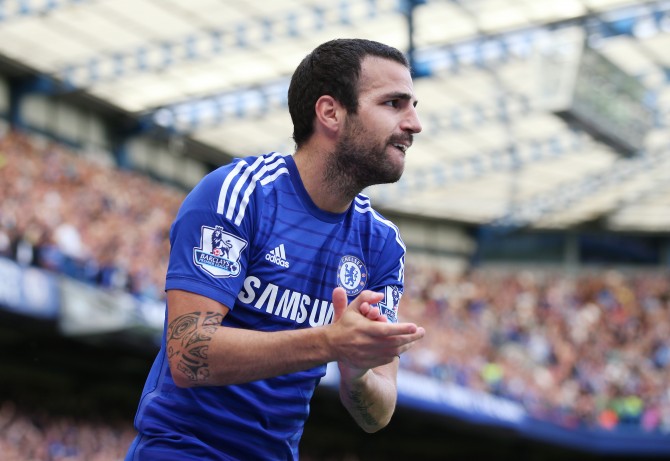
By a quirk of fate, this particular awkward encounter fell on the same day as the airing of the new series of Love/Hate, a title which just so happens to be a fitting description of how Fabregas’ relationship with the Arsenal fans has soured. Once an Arsenal darling, Fabregas is now a sworn enemy. What was once love and adoration has now turned to a sense of bitter resentment and betrayal, with Fabregas receiving half-hearted boos from the away fans at Stamford Bridge.
In the 1955 classic The Night Of The Hunter, Robert Mitchum, LOVE and HATE tattooed on his knuckles, clasps his hands together to enact the struggle between the two. But rather than reinforcing the opposition between LOVE and HATE, this in fact demonstrates just how intertwined, how inseparable they are. Something similar is at work in Love/Hate: it blurs the lines between the traditionally opposed concepts of “good” and “bad”, between “love” and “hate”. Love/Hate makes you love the bad guy. With his new hair, Fabregas would fit in quite well.
This ambivalence might also be the key to the Fabregas situation: the reason why Arsenal fans have felt such pain at Fabregas’ defection to Chelsea (via Barcelona) is that there has been, at least until now and probably for some time yet to come, a sense of confusion about the Fabregas phenomenon. How should Arsenal fans feel about this?
The waters are muddied by the fact that, unlike Robin Van Persie, Fabregas did not force a move to a direct rival with all the subtlety of a bull in a china shop. Having spent three years in Barcelona alongside fellow La Masia graduates with the same “Barcelona DNA” (as mentioned by any Barcelona player near a microphone circa 2011), Arsenal fans could grieve in peace, becoming accustomed to life after Cesc without having to watch him play in the same league every weekend.
Add to that the fact that Arsenal had the chance during the summer to save Fabregas from Stockholm syndrome under Mourinho, but chose not to, and it becomes clear that Arsenal fans cannot hope for that clean-cut and un-complicated hatred which characterised the “Adebayor incident” of 2009 (not to suggest that Fabregas and Adebayor are comparable in terms of their significance to Arsenal fans).
Even Fabregas’ post-match interview was a picture of ambivalence, expressing his loyalty to his new club whilst professing his respect for the Arsenal fans, going so far as to claim that he is still loved by them, deep-down. And the thing is – he’s on to something. The boos for Fabregas were half-hearted because the fans’ hatred for Fabregas is half-hearted.
Emotions in football are generally considered not to be as complex as in other spheres – the spectrum ranges from blind rage to ecstasy, but with little in between, mutually exclusive extremes which allow for no grey-area. Cesc Fabregas stands as living proof that this is not always the case. This is why the Fabregas situation is so frustrating. Arsenal fans are stuck between love and hate, unable to fully loathe Fabregas yet at the same time unable to remember the good old days untainted by Chelsea blue.






